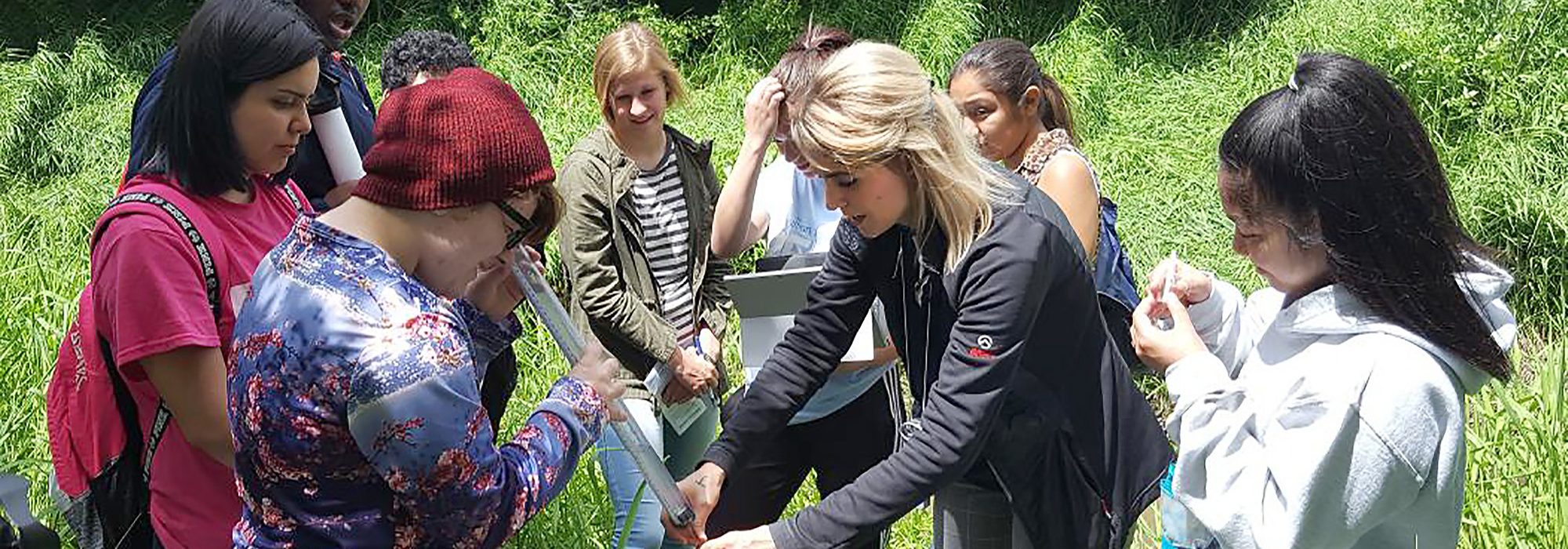
Aligning with the Air Force Association’s mission to promote STEM (science, technology, engineering, and math) education among today’s youth, Rachael Arens, a teacher at the Omaha Northwest High Magnet School in Omaha, Neb., is the 2020 AFA National Teacher of the Year, presented by Rolls-Royce.
“With her leadership and support for her students, Rachael has demonstrated the qualities of a dedicated and successful proponent of STEM. Rolls-Royce is proud to support Rachael and the Air Force Association, as we all work together to develop and support today’s STEM students—the science and technology leaders of tomorrow,” said Rolls-Royce Senior Vice President, Business Development–Fixed Wing, Lt. Gen. Darryl Roberson, USAF (Ret.).
Nominated by the Ak-Sar-Ben Chapter, Arens teaches ninth through 12th grade AP Environmental Science, Chemistry, Anatomy/Physiology, Biology, and Advanced Horticulture, and is Omaha Public Schools science curriculum director. Named a 2020 Albert Einstein Distinguished Educator Fellow, she is working with NASA in Washington, D.C., this fall.
Arens earned a master’s degree in biology, a graduate teaching certificate, and is a doctoral candidate in STEM education. Among her many leadership roles, she has served on two state science education boards, served as a state adviser to the National Geographic Education Society, and developed standards and district-wide curriculum for science courses.
Arens’ interest in STEM—specifically biology—started when she was growing up on a farm in Peirce, Neb., playing in her backyard creek with frogs and tiger salamanders. After some time had passed, she noticed that all of the frogs and salamanders had disappeared from the creek. The water was labeled as toxic, and she wanted to know what happened, and why.
When entering college Arens pursued biology with an emphasis in Toxicology, or poison. Frogs, she learned, are bioindicators—meaning, when they get sick or disappear, something is wrong with the water or habitat. Wanting to teach others to foster “transformational change” regarding science—and not just learn the curriculum as taught—is how she teaches her students. She wants them to figure out how to enact change and transcend boundaries.

When asked how she felt science has changed since she has been teaching, she replied that today it is much harder to “accept science.” With an inundation of information on social media websites, along with the current political climate, there are many ways to make information “appear” credible, even when it’s not—and vice versa.
Her school in Nebraska boasts a diverse population, with the majority being Black. Arens said she sees more girls in her biology classes and, in the engineering classes, there are more boys—”a nice mix.”
A one-year, science-engagement partnership with NASA has her working to curate national education programs, implement web-based programs—specifically geared toward online learning during the pandemic—and developing STEM teacher programs. Although teachers are learning new ways to teach and keep students engaged, nothing beats hands-on, face-to-face time with the students, she said. This is where relationships, mentorships, and great sessions debating and discussing issues occur.
Arens said she feels teachers need more advocacy, whether in the form of resources, better pay, or help teaching in underrepresented and rural communities. She believes that AFA can help by “building bridges” and attending statewide educator conferences in order to strengthen teacher networks so teachers will know where to look when they need help. AFA, she says, can also use social media accounts to disseminate information and connect with local school districts, which may then reinforce commitments to teachers. Recently, a disturbingly large number of teachers have chosen other careers, she said. Knowing that they have a support system in place can, and will, make a difference.
Arens encourages her students to seek out solutions for problems that occur in their own communities. They are involved in service-oriented projects and practice results-driven research, learning ways to advocate for civic and social justice and science initiatives. She takes being a role model and mentor for her students seriously, and is doing her part to bring along the next generation of STEM leaders.
AFA salutes Rachael and the many, many STEM teachers across the nation who are motivating young people and making a difference in America’s schools.
